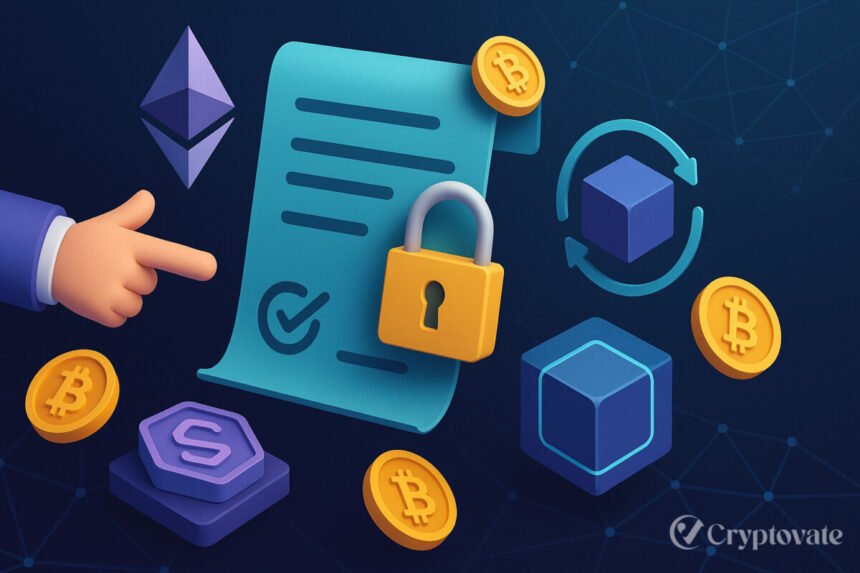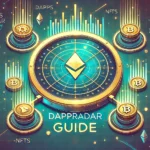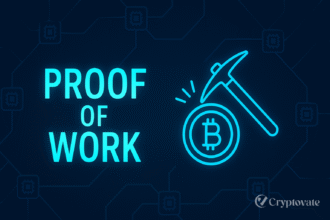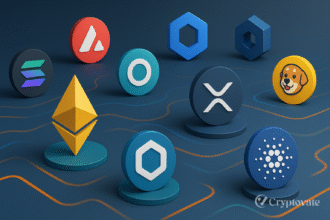– Ad –
| Getting your Trinity Audio player ready... |
Smart contracts are the backbone of blockchain automation, and if you’re not deep into them yet, you’re missing the future. Smart contracts are self-executing agreements on blockchain, and once you crack how they work, you’ll see why they’re revolutionizing everything from finance to art markets.
What Are Smart Contracts?
A smart contract is code stored on a blockchain that automatically executes when certain conditions are met. Think of it like a vending machine: put in your coins, make a selection, and boom, you get a snack. No middleman, no waiting.
These aren’t contracts in the legal sense. They’re self-enforcing programs. That makes them:
- Trustless – No need to trust a third party.
- Transparent – You can view the code.
- Automated – It runs itself once coded.
- Immutable – Once live, it can’t be changed.
How Smart Contracts Work
Here’s how a blockchain smart contract comes to life:
- Write the contract – Developers use languages like Solidity (Ethereum) or Rust (Solana).
- Deploy it – The contract is uploaded and lives on the blockchain.
- Trigger an execution – Someone calls a function with a transaction.
- Automatic execution – The contract checks conditions, and components like wallets or NFTs are transferred.
- Finality – Transactions are recorded forever.
Basically, performative code equals automated trust.
Why Smart Contracts Matter?
1. Removes Middlemen
Let’s face it: intermediaries are slow and expensive. Smart contracts cut them out, saving time and cash.
2. Boosts Transparency
Since the code is public, you and anyone can audit its logic. No surprises.
3. Ensures Efficiency
By executing automatically, smart contracts reduce manual overhead and human error.
4. Enables New Business Models
Ever hear of DAOs? Or NFTs tied to royalty smart contracts? None of that works without smart contracts.
Smart Contract Use Cases
- Decentralized Finance (DeFi)
Loan protocols yield farming, automated market makers, and smart contracts are the glue of DeFi.
- Tokenized Assets
Any asset, from real estate to concert tickets, can live on-chain with smart contracts managing ownership and rights.
- NFT Magic
Digital art is cool, but contracts that ensure artists get royalties every sale? That’s revolutionary.
- Supply Chain Trust
Track product origins, automated audits, and verify authenticity—all powered by code.
- DAOs & Governance
Members vote, and code executes the outcome transparently—no shady business.
How to Write or Deploy Your First Smart Contract
- Learn the basics – Pick Solidity if targeting Ethereum, or Rust for Solana. Tutorials are everywhere.
- Use dev tools – Truffle, Hardhat, Remix- to make deployment painless.
- Test it – Run in a testnet like Rinkeby or Goerli. Iron out bugs.
- Audit the code – Security is everything. Review or pay a third-party auditor.
- Deploy – Launch on mainnet, and you’re live—your code decides the rest.
Pitfalls and Headaches to Avoid
- Immutable mistakes
A single bug means you might have to deploy a brand-new contract. No patching.
- High gas fees
Congested networks = expensive executions. Plan smart.
- Security risks
Hacks happen. Eventual bug bounty, yes—but avoid rookie errors.
- Legal gray zones
Regulators are still decoding where these fit in KYC/AML or contract law. Stay informed.
Tips to Ensure Your Smart Contract Kicks Ass
- Keep it modular – Simple, smaller pieces are easier to maintain and audit.
- Use libraries – Drink from verified contracts like OpenZeppelin.
- Run tests – Test extreme scenarios and potential vulnerabilities.
- Code reviews – Get fresh eyes on it.
- Upgradeability patterns – If you need to evolve logic, do it smartly.
Quick Recap (TL;DR)
- Smart contracts execute agreements through code, not lawyers.
- They offer trust, efficiency, and transparency.
- Used across DeFi, NFTs, DAOs, supply chains, and more.
- Typical workflow: Code → Deploy → Trigger → Execute → Final.
- Risks: immutability, fees, hacks, and regulatory grey areas.
- Pro tips: modular code, audits, and libraries.
Also Read: Is Ethereum a Smart Investment Choice in 2025?
Let’s Wrap
You’ve moved beyond buzzwords to grasping the inner workings and power of smart contracts. You can dig into code, build your own, or better yet, plug in a Web3 project with confidence.
If you want to go deeper, like diving into Solidity basics, gas optimization, or real-world contract audits—I’m happy to guide the next steps. Just say the word.
FAQs
What is a smart contract?
A smart contract is a self-executing program on a blockchain that automatically runs when conditions are met, like a digital vending machine.
How do smart contracts work?
They’re coded (e.g., in Solidity), deployed on a blockchain, triggered by transactions, and execute actions like transferring assets.
What are smart contracts used for?
They power DeFi, NFTs, DAOs, supply chain tracking, and tokenized assets, enabling trustless, transparent automation.
What are the risks of smart contracts?
Risks include coding errors, high gas fees, security vulnerabilities, and unclear legal regulations. Audits and testing are key.


















